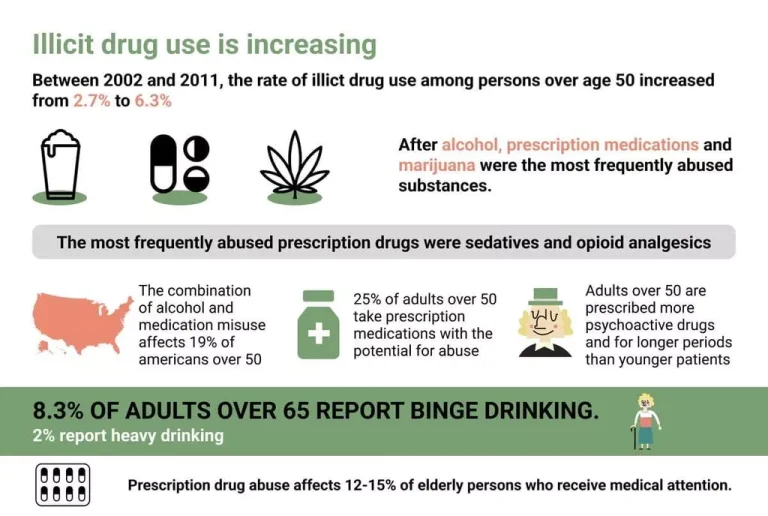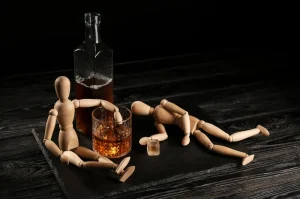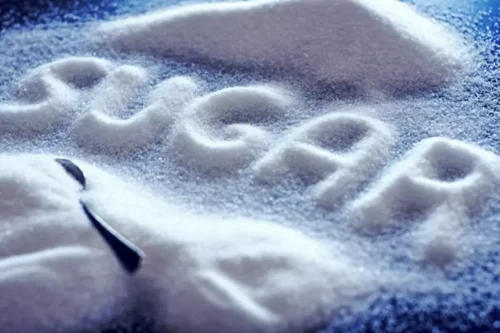
These expressions that help people recovering from addiction regain a spiritual footing once again. Doing so will give you a better idea of how a spiritual malady affects an alcoholic. However, that does not mean addicts are confronting this spiritual ailment by themselves. While an addict’s spiritual malady triggers a compulsive need to use drugs, other people’s spiritual conflicts may take the form of a gambling problem, anxiety, depression, or eating disorder. Addiction is a spiritual disease because it represents an individual’s attempt to disconnect from reality and any sense of spirituality. Simply put, they feel a terrible loneliness at their very soul or center of being.
- This means those things that are not solid- such as our thoughts, our beliefs, our emotions- are what is spiritual.
- To beat their addiction, people must face the reality that there is indeed a power larger than themselves.
- Practicing prayer and meditation helps us be mindful of our surroundings and gain consciousness of our spirituality by bringing us closer to our higher power.
The Spiritual Malady: Bane of the Alcoholic and Addict
- Old timers and recovering people with more experience can explain in layman’s terms just what the author Bill W.
- After overcoming homelessness and drug addiction, Adam found his life’s purpose in helping addicts find the same freedom he found.
- Financial threat and injury have similar effects to physical threat and injury, too.
- Daily gratitude and journaling help recognize and appreciate the positive aspects of life, fostering spiritual growth.
- If you are suffering from symptoms of the spiritual malady, use these clarifying questions to ascertain where the problem lies.
In other words, the mental and physical factors of addictive and compulsive behaviors are put into remission AFTER the “spiritual malady” is overcome. Integrating practices such as meditation, mindfulness, and acts of service into daily life can further enhance spiritual well-being and foster a sense of peace and purpose. With the right support system and a commitment to spiritual growth, overcoming spiritual malady is not only possible but transformative, leading to a fulfilling and sober life. Selfishness, self-centeredness, and self seeking are manifestations of spiritual malady that contribute to the cycle of addiction.
Sobriety Calculator
It is a reality of my powerlessness and unmanageability and enables me to see why I so desperately need to seek a Power Greater than myself. And unless this malady is recognized, and a course of action (the Twelve Steps) is taken to enable God to remove it, the root of our alcoholic illness can lie dormant and burn us when we least expect it. Thankfully, the “spiritual malady” is no longer a “missing piece” of Step One for me. Understanding spiritual malady and its impact on recovery is essential for anyone battling addiction. This deep-seated sense of disconnection and unrest drives the cycle of addiction and self-destructive behaviors.
Spiritual Healing and Spiritual Awakening
(Its actually turned out to be awesome!) I suffered a good amount of physical cravings the first two weeks. Then one day at work I was walking past a bunch donuts some evil salesman had left in the break room when I realized that I no longer physically craved sugar. But I realized I wanted the emotional payoff more than I physically craved the sugar and lard. I really like the analogy that the physical part of our disease is an “allergy of the body”. Because its exactly like allergies; For example, some people can rub their face in a cat’s fur and it doesn’t bother them a bit. (Although I’m not sure who would ever want to do that!) But for me, I’m allergic to cats and if I did that I’d be in a world of hurt.
- Regardless of how it manifests itself, a spiritual malady is always rooted in an inner conflict.
- Receive weekly mailings to support your meditation journey and your daily practice.
- Before when I was younger I used to physically just suffer during an illness.
- To conclude, it’s not my body — my allergic reaction to alcohol — that’s going to take me back to drinking.
- Turning within is so difficult, as is forgiving myself, but that’s where the real healing has been.
Organizations We Support: .
This is frequently referred to as “fight and flight” physiology. The other threat phenotype is one of relative immobilization where we retreat, ruminate, isolate, dissociate and experience spiritual malady bodily and spiritual disconnections. This is frequently referred to as “falter (or freeze) and faint” physiology. On page 62 the text explains that “Selfishness-self-centeredness!
Take Your First Step To Recovery
There are a lot of physical threats that can flip our physiology into a defense state. The alcoholic who evolves spiritually receives inner wisdom – an intuition and understanding – a noetic mindset that goes beyond the traditional five senses. They also experience an ineffable quality from becoming spiritual – one where their feelings go beyond mere words. Last year I was diagnosed with diabetes, which I’ve written more about here. Fortunately, it was caught early enough that I had a chance to try and manage it with lifestyle changes. The day after I got the news, I started on my brand new low-sugar, low-carb lifestyle of eating, which I referred to at the time as the “no more happiness” diet.
- The important thing is that you stay committed to your sobriety and continue working the program – eventually, everything else will fall into place.
- Many people say thatalcoholics have a disease of the mind, body, and spirit.
- They will purport to have the power to “heal” all your issues and provide you with the “one true path” towards enlightenment, illumination, self-realization, or Oneness.
- There are a lot of physical threats that can flip our physiology into a defense state.
- As a result of this thought process, the spiritual illness they’re up against is at the core of their addiction.
- This complacency can then lead to a sense of entitlement which is extremely dangerous for people in recovery.
What is Authentic Spiritual Healing?
The second dark twin is perpetrated by spiritual “healers” and practitioners who are aware – either on a conscious or unconscious level – of the first dark twin of spiritual healing. It is completely understandable https://ecosoberhouse.com/ to want to try to get rid of our suffering – particularly if we’re exhausted and deeply wounded. Click on any of the above links to get further guidance if you’d like a place to start with your spiritual healing.


In the 12-Step Program, this surrender is crucial for acknowledging our inability to overcome addiction on our own. By surrendering our ego and self-will, we open ourselves to the guidance and support needed to navigate the recovery journey. This total surrender of one’s ego is essential for finding relief from the burdens of addiction. As addicts we can become so focused on the outward form our addiction takes – whether that booze, drugs, sex, overeating, etc. – that we overlook its deep roots at the core of our being. But there is more to our threat load than the physical and spiritual. We have the subawareness shadow part of our physiology that tends towards a defense bias and trigger.

Whether you seek to engage in formal prayer, informal mental conversations, or merely by doing good and putting positive energy into the universe, there is no right or wrong way to pray to your higher power. Once you open up to this idea and implement that spiritual connection, you will experience your long-awaited spiritual awakening, the answer to that pesky spiritual malady we suffer from as alcoholics. When left unresolved, a spiritual malady will continue to lead to restlessness, irritability, and discontentment. It can also lead to other problems, such as alcohol abuse or other addictions.

For right now, just ask yourself who might be on your amends list. So let’s take a look at the questions we can ask ourselves to help us build our spiritual inventory list. We’re going to look specifically at four areas of our lives. Finally, self-reliance can be dangerous because it can lead to complacency. When people become too self-reliant, they may stop working on their program entirely. This complacency can then lead to a sense of entitlement which is extremely dangerous for people in recovery.



